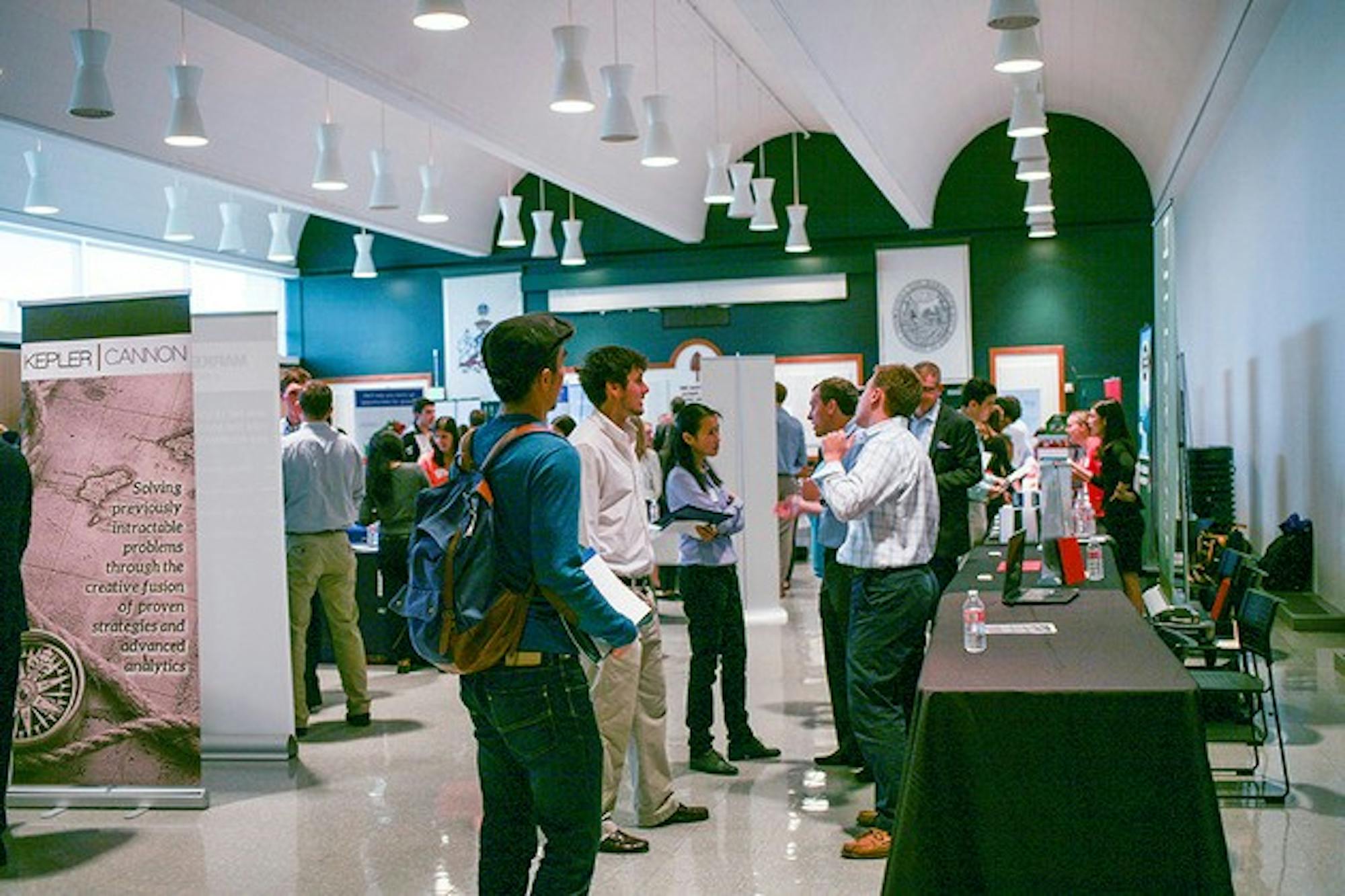My father’s high school best friend, my dad told me, hated his job in corporate law. The long hours sucked and his friend didn’t find the work meaningful, and yet after 20 years in the practice, he still hadn’t quit. Every time my dad talked to his best friend, it sounded like he was finally ready to leave and do something he was passionate about, but that day never came. Because, while his job was tiresome and meaningless, its financial benefits were too tantalizing to let go of. The nice house, leisurely vacations, and sense of “just being comfortable” had taken on a life of their own, and my dad’s friend told him that he couldn’t risk those, even for the chance of finally doing something he loved.
These are the “golden handcuffs:” the juicy six-figure salaries that chain people to jobs they hate, or find utterly meaningless. Coming to Dartmouth, I thought my college experience would inspire me to pursue my passions, no matter the risk. In many ways, my friends, professors and classes have succeeded in doing that. It also turns out that this institution is exceptionally good at preparing students for a lifetime spent in shiny golden handcuffs.
I can’t even count the number of conversations I’ve had with my peers in which they’ve shared their desire to “sell out” — their words, in many cases — for a few years after graduation by working lucrative consulting or finance jobs. After all, prestigious firms make a point to recruit straight from Ivy League schools, so choosing this track streamlines the job search to an incredible extent. The vast majority of my friends working in consulting and finance are already sitting on signed summer contracts with hefty hourly wages and likely return offers after graduation. I can’t think of any other field where job security is handed to undergraduates like that.
That’s not to say these jobs are easy to get — I’ve sat next to groups of students casing for hours in the library, listened as they stressed over their resumes and fine-tuned their interview skills. And the jobs themselves can be unforgiving, with long hours and high stakes.
My question is whether Dartmouth is really preparing its students to do what they love, even when it might not be the most lucrative path. I remember writing my Dartmouth admissions essay in response to an Albert Einstein quote about being “passionately curious,” and it’s ironic to me that the same institution that prizes creative, curious and multifaceted students during its admissions cycle doesn’t seem to have the same priorities when it comes to post-grad careers.
For me, this issue is personal. I would love nothing more than to be a journalist after graduation, and over the past few months I’ve been furiously applying to journalism summer internships. With the exception of my incredible friends and coworkers at The Dartmouth, I’ve gone through that application process almost entirely alone. Dartmouth loves to claim its humanities students once they’re successful — the College’s website will proudly announce the success of alumni like CNN correspondent Jake Tapper ’91 — but when I was looking for classes relating to journalism over winter break, I couldn’t find a single one. The only available course offering is a freshman seminar on Women in Journalism, and Dartmouth has no journalism department or program. Journalism courses are sporadically offered through the English department, but there are none on the course listings for the next two years. I will graduate before another journalism class is offered at Dartmouth.
It’s worth noting that while the College is partially responsible for steering students into meaningful and well-fitting careers, much of this responsibility lies with us, the College’s students. I believe that something is wrong with our priorities if our life goals are steered solely by financial security. I don’t have a statistic to back this up, but something tells me that comfortable people are rarely the ones who fundamentally alter the course of history.
What happened to all of the students who wrote their admissions essays about wanting to change the world? After four years of rigorous, valuable education, shouldn’t we leave even more inspired than when we arrived?
Maybe The Dartmouth’s 2021 graduation survey holds the answers that I’m looking for. After all, it reported that not one student entering finance would be making less than $75,000/year, and no consultant would be making under $50,000 a year.
On the other hand, 95% of students entering public service reported starting salaries under $50,000/year, along with every single graduate going into journalism. Numbers like these are hard to argue with, and they explain the hold that consulting and finance jobs have over Dartmouth students.
However, I wonder if these numbers aren’t really what needs to change. Somewhere between our acceptance letter and our graduation day, Dartmouth students are losing the bright-eyed idealism that might enable us to turn down six figure salaries in the name of doing something truly inspiring. Of course, some Dartmouth students don’t have the luxury of being able to turn down a sweet corporate offer to less profitable interests, and taking a financial risk is much easier to do when you come from a position of privilege. It’s easier for me to jump into journalism knowing that if it doesn’t work out, there’s a safety net to catch me.
As an institution, I believe Dartmouth can and should do more to create alumni who are willing to risk financial comfort in the name of their passions. And as students, I believe we should be more willing to ask ourselves and each other if we’re really doing what we love.
Caris is a '23 from Long Beach, CA and is majoring in religion modified with art history. When not editing stories for the Mirror, you can find her playing club soccer, snowboarding at the Skiway or sipping coffee in Sherman Art Library. After college, she plans on attending graduate school in religion.




